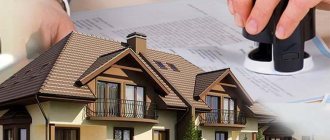When summer residents will have to move the electric meter to a street pole: a new point in the rules
Current update.
The first such requirements began to appear more than 5 years ago, but still not all owners of dachas and private houses know how to respond to them. Has the problem affected you too? This means it’s time to study the legislative framework. It is important to remember that this issue has quite significant nuances. For example, the legality of the requirement depends on whether your property is an individual housing construction or a country house, has been built and operated for a long time or is just under construction, is located in Russia or Belarus, etc.
Moving meters outside in dacha cooperatives and gardening associations
You can often hear that the chairman of SNT began to demand that electricity meters be moved from houses to the street, citing the fact that this way it is possible to control electricity consumption and fight theft. However, out of the blue the chairman has no right to make such demands. According to the Federal Law of April 15, 1998 No. 66-FZ, as amended. dated 07/03/2016 “On gardening, gardening and dacha non-profit associations of citizens”, all decisions of this kind are made only by the general meeting. That is, this topic must be put on the agenda in advance, discussed and voted on. If this does not happen, you can safely ignore the requirements. If your neighbors, for the most part, agreed to the demands, you will also have to comply.
Moving meters outside in private homes
In private households, no one orders you at all. Decide for yourself whether you agree or disagree with the requirements of the energy supply organization. However, remember that the law is on your side, and if representatives of Energosbyt or a similar organization begin to insist, demand that they voice the legislative standards that guide them. According to the current Electrical Installation Rules (PUE) clause 1.6. 6 and 1.5.27, which, by the way, are advisory and not mandatory, the electric meter should be located at the boundary of the network (according to the balance), as well as in dry, easily accessible rooms, a place not cramped for work, where the temperature in winter is does not fall below 0°C. Otherwise, it is not indicated in the Decree of the Government of the Russian Federation dated 05/06/2011 No. 354 “On the provision of utility services to owners and users of premises in apartment buildings and residential buildings”, which came into force on September 1, 2012. In addition, the requirement to install a meter on the street also violates Art. 210 of the Civil Code of the Russian Federation, since you, while remaining the owner of the meter, will not be able to fully maintain it. What do these standards, articles and acts mean when translated from legal language into human language? To begin with, this requirement is not regulated by any legislative act or regulation. That is, this is solely the wish of the company with which you have a contract for the supply of electricity. And you have every right to refuse this wish. Now let’s look in more detail at why this is beneficial to representatives of Energosbyt and not beneficial to you. Yes, on the one hand, their specialists will really be able to control the operation of the meter and take data without prior agreement with you, which will save them a lot of effort and time. On the other hand, if you regularly visit the house, then it will not be difficult for the inspectors to contact you. At the same time, meters placed outside are quite often broken by vandals, stolen in whole or in parts, they overheat in the sun, they are flooded with rain, and this inevitably reduces their shelf life. In addition, when temperature changes occur, many of them give incorrect readings or stop working altogether. And the owner, that is, you, will have to pay for the repair, replacement or restoration of a broken meter. As you can see, there are not many reasons to change the “place of residence” of the electric meter, and even those that exist are very doubtful. Remember that your refusal is legal and they have no right to turn off your electricity if all your bills are paid on time. If such threats begin to come from representatives of Energosbyt or other organizations, you have the right to go to court. For residents of the Republic of Belarus, the situation is fundamentally different - on October 17, 2011, the Council of Ministers adopted resolution No. 1394 on the need to remove electricity meters from residential premises and install them outside the house on the territory of the site.
Can they require that the electric meter be placed on a street pole?
Company employees cannot refer to the law in their demands for installing an electric meter on a pole. There is no such regulation in regulatory documents. Meanwhile, regulatory documents indicate the following rules for installing an electricity meter in homes:
- in a place protected from temperature changes (up to 0 degrees) and precipitation;
- fixation height 0.4 – 1.7 m;
- The owner of the facility bears full responsibility for the safety of the equipment.
Rice. 1 Installing an electricity meter on the street is a convenient solution for employees of the supplier company, but the law does not require it
The requirements of the supplier company’s employees are completely contrary to the norms:
- precipitation and winter temperatures reduce the service life and accuracy of the meter;
- installation at a high height prevents its normal use for humans;
- The owner of the facility bears the losses, since he is responsible for the serviceability of the equipment, which on the street breaks down faster.
Important: the street meter shows an error of 10% or more in the direction of the supplier.
If the citizen agrees with the installation of the meter
If a person nevertheless agrees to install a metering device, he should ensure that the procedure is carried out in full compliance with current standards. So, it is recommended :
- check the reliability of the pole on which the device will be fixed;
- clarify who will have access to the metering device. Ideally, it should be in a box, the key to which will be held by a limited number of people;
- choose a metering device that, according to its technical parameters, is suitable for placement on the street;
- check that installation is carried out by a qualified authorized person, and sealing is carried out by a representative of the energy supplier.
Failure to comply with these recommendations may lead to a number of negative consequences, such as subsequent discrepancies in accounting, malfunctions of the device, and so on.
Installation of a meter on the street in dacha cooperatives and garden associations
Rice. 2 Installation of an electric meter on a dacha pole or in a private residential sector is carried out only by decision of the owners
In such companies, all decisions regarding the course of action or disposal of common property are made at a general meeting.
Important: if there is no meeting and, accordingly, no minutes, no one alone has the right to make decisions regarding organizational issues, much less demand their implementation.
Therefore, if the chairman of the company unreasonably demands the installation of an electric meter on the dacha pole, such claims can be ignored.
What can SNT management do?
In fact, the management of the partnership cannot take any legal actions aimed at forcing the installation of additional metering devices. But in practice, the following methods are most often used:
- constant calls to the contact number or sending letters with demands;
- power outage;
- accrual of fines for the lack of external metering devices.
All of these actions are illegal. A member of the partnership has the right to apply to the court or prosecutor’s office to protect his violated rights. The issue of stopping illegal actions can be raised at a general meeting of members of the partnership.
What legislative acts can be referred to when refusing to transfer a meter?
Rice. 3 What do the laws indicate?
If you refuse to install an electric meter on the street in 2021, you can refer to the following legislative acts:
- Clause 1.5.27 PUE – installation of electrical equipment, selection of a location with optimal conditions for it;
- Clause 1.5.29 PUE - permissible installation height and rules for storing meters, for example, in special cabinets;
- Art. 210 of the Civil Code of the Russian Federation - responsibility for the safety and uninterrupted operation of equipment.
Government Decree No. 354 of 2011 also confirms the listed standards and does not indicate other parameters.
Is it worth giving up?
According to legal regulations, electricity meters are placed outside only with the consent of the owner. The basis for submission to the SNT may be a collective decision made at a general meeting.
Initially, many may perceive such an innovation critically, fearing for the safety of their property. But you also need to take into account the benefits that a change in the location of the device will provide. The controller will no longer bother you with monthly visits.
The indicator data will be sent to the settlement center on time, this eliminates the accrual of penalties and fines, and the occurrence of any misunderstandings. The device is reliably protected by a special shield against hacking and theft. For SNT members, such placement of the meter can also have significant advantages.
A package of documents required when moving an electric meter to the street
According to the procedure for installing an electric meter in a private house, careful preparation should be made for its dismantling and removal to the street. First of all, collect the appropriate package of documents:
- Before taking the equipment outside, you should request a standard contract from the supplier company and an act on the division of balance sheet ownership. This document will clearly outline the rights and responsibilities of each party. The document will indicate the series and number of the meter, its type, and the owner’s current account.
- Afterwards, it is important to draw up an application for permission to operate the equipment. It is drawn up at the company’s office; upon receipt, a control team will go to the specified address and check the correctness of the independent work carried out. The meter will be sealed and an act of approval will be generated.
Important: the act will indicate the degree of readiness of the equipment for operation and the cost of the company’s services. If the sealing is primary, then it is free.
Rules for the construction of electrical installations (PUE)
In accordance with them, it is recommended to install devices at the boundary between the network (according to balance sheet ownership) of the electric company and the client.
If there is no such border (as on SNT lands), it should be located near the garden plot. This measure will help eliminate the possibility of electricity theft by unreliable customers.
General procedure for installing an electric meter on the street
Rice. 4 Requirements for moving electricity meters to the street
If the owner of a summer cottage or private house decides to meet the requirements halfway, the rules for installing electricity meters on the street should be followed.
- Choose a location for the equipment - the first pole you come across will not work. The support for the meter must be rigid and durable.
- The owner must protect the device from weather conditions by placing it in a special cabinet with a window through which readings can be taken.
Important: the device can be operated at temperatures from 0 to +40 degrees.
- The cable must be reliably protected from kinks, bends and various damages. It is equipped with a reliable support.
Work on installing the meter is carried out in the following sequence:
- the electricity supply line is de-energized before operation;
- an automatic machine is installed in front of the device, and then an electric meter is connected behind it;
- Grounding must be installed for operational safety;
- House wiring is connected to the output contacts of the equipment.
Important: the first test switch-on must be performed to check the correct operation of the device.
A cabinet for an electric meter on the street will partially protect the device from damage
The closet is a separate topic of discussion. It is created and installed before installing the electric meter and in compliance with the rules:
- availability of burglary protection – reliable installation, fastening and installation of burglary protection;
- ensuring tightness to protect against moisture penetration;
- reliable protection from low temperatures through insulation; without it, the device will operate with errors in favor of the company.
Important: to ensure that the wire is reliably protected, an iron pipe is mounted to the box.
Situation 2
On the territory of SNT, an infrastructure of electrical wires has been established, which are located in common areas and on the approaches to dacha plots. A wire broke down in the common area, causing a loss of electricity in one of the areas of the cooperative. Who should carry out the replacement? At whose expense? How are costs paid?
Answer
The Housing Code determines that on the territory of garden/dacha cooperatives, as in apartment buildings, there is a rule for dividing property into common and individual. Private property (if we are talking about electrical networks) includes a fork in wires and meters located on the territory of summer cottages. Such property must be maintained at the expense of the tenant/owner of the land. In the event of a breakdown, a person pays for repairs and replaces the damaged area. Costs are paid independently.
Electrical mains located on common streets are joint property, so each person must equally participate in the safety of the property. As for the breakdown, compensation for damage to common property is carried out by the SNT administration. This means that citizens need to submit a written application to the chairman or council of the cooperative, asking for the wiring to be replaced. The chairman calls an electrician and pays for his services from the general contributions of the summer residents.
conclusions
If they are forced to install meters on poles, is this requirement legal? There are no rules according to which it would be possible to force the owner of a private house to install a meter on the street to his own detriment. He is the owner of the equipment and is responsible for the quality of its work. As a result of low temperatures, the device may refuse to work at all, or may show inflated data. In addition, such equipment can be stolen by vandals.
The energy company has no legal leverage over citizens in the event of a failure; they cannot cut off the power supply or sue the owner of the house. If the claims come from the chairman of the cooperative, then he must act on the basis of the minutes of the general meeting. The document gives him the authority to demand that the owners of the site comply with the rules adopted by them.
If the owner of the site decides to move the meter outside, he must comply with all the requirements for its equipment, connection and startup.
Order a free legal consultation
Is it possible to refuse
ATTENTION! The energy company's requirement to move the meter outside violates the laws and regulations for the installation and operation of such devices.
Members of the partnership, faced with such intentions of the supplier, must write an official refusal to change the location of electricity meters. But perhaps such a solution will suit them better, in which case a meeting is held and a resolution is approved to move the devices to poles throughout the SNT.










